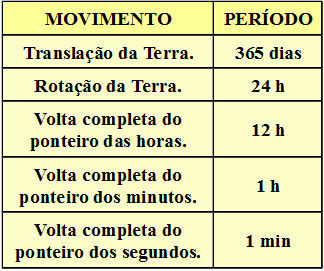frequency and period they are greatnesses physical scalars that relate to the rotation of objects that perform circular motion and with the production of waves. The two quantities are mathematically related, so that one is the inverse of the other.

Frequency (f)
Frequency is defined as the number of turns performed by an object in circular motion in a given time interval. It can also be defined as the amount of waves generated in a specific time.

A very common unit of measure for frequency is the rotation per minute (r.p.m). An object that performs a circular motion at 60 rpm, for example, completes 60 rotations per minute.
According to International System of Units (SI), the unit that defines the frequency is the rotation per second, defined as hertz (Hz). This unit of measurement is a tribute to the German physicist Heinrich Rudolf Hertz (1857-1894), who developed works related to the electromagnetic radiation. An object that performs circular motion with a frequency of 60 Hz, for example, completes 60 rotations every second.
The transformation between the Hz and r.p.m units is done by multiplying or dividing the values by 60, since 1 minute corresponds to 60 s.

Period (T)
The period is the time it takes for an object in circular motion to complete a turn. In the case of wave generation, it is the time required for a wave to be formed.

According to International System of Units (SI), the unit of measure for the period is seconds (s).
Example
An object performs a uniform circular motion with a frequency of 3600 r.p.m. Therefore, determine:
The) The number of rotations performed per second;
B) The time required to complete a complete lap.
ANSWER:
The) To change from r.p.m to Hz, just divide the value by 60.
3600 rpm ÷ 60 = 60 Hz
The object performs 60 rotations per second.
B) The period (T) is the time required to complete a complete lap. This quantity is defined as the inverse of the frequency.
T = 1 ÷ f
T = 1 ÷ 60
T ≈ 0.017 s ≈ 17. 10 – 3 only 17 ms
By Joab Silas
Graduated in Physics
Source: Brazil School - https://brasilescola.uol.com.br/o-que-e/fisica/o-que-e-frequencia-e-periodo.htm


